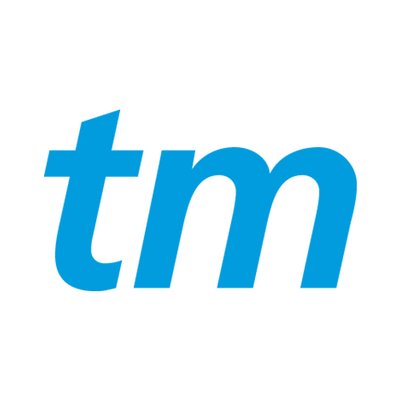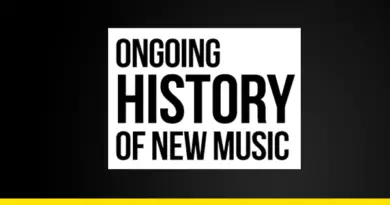This is the best explanation of concert ticket prices I’ve ever read
I’ve been studying and writing about the price of concert tickets for years. It’s always been my goal to show the truth about pricing amid all the kvetching we hear every time a hot show is sold out.
There are so many misconceptions, false narratives, and wrong assumptions about how the ticketing business works. Ticketmaster does NOT set prices. The promoters do NOT set prices. Things like service charges and facility fees and NOT “junk fees.”
If you genuinely want to know about the complexities of this side of music, there’s a blog entry from Live Nation that explains everything in excellent details. Yes, yes, people are going to say “CONSIDER THE SOURCE! THEY’RE JUST LYING TO COVER THEIR ASS!” No, they’re not. This is actually how things work.
In the ongoing antitrust attacks on Live Nation and Ticketmaster, a constant theme is that their alleged “monopolies” are responsible for high ticket prices. Rhetorically, that’s understandable, because if you want to rile up fans against Live Nation and Ticketmaster, there is no better way than to blame them for something you know fans dislike. But is there really a connection between any of these antitrust arguments and prices for concert tickets? That’s the subject of today’s post.
The starting point is what Live Nation and Ticketmaster actually do. What roles do they play in the concert industry and what power does that give them to influence ticket prices? We’ll start with Ticketmaster, since it tends to get the lion’s share of the blame for high ticket prices even though, as we shall see, it has the least influence over prices.
HOW TICKETING WORKS
Ticketmaster and other “primary ticketing companies” provide the technology and services that venues need to manage and market shows, sell tickets, and validate tickets for entry. Typically, one primary ticketing company provides these services for all events at a given venue. The chosen ticketing company then interfaces with consumers on online marketplaces, not to sell inventory of their own, but as agents of the venues selling tickets priced by performers and production entities. Fans tend not to understand that. They think of Ticketmaster as an enormous ticket retailer that acquires vast quantities of tickets and puts them up for sale at prices Ticketmaster determines – an assumption that makes it easy to blame Ticketmaster for high ticket prices. But that’s not true.
Tickets are actually priced by artists and teams. It’s their show, they get to decide what it costs to get in. The NFL tickets on Ticketmaster were priced by the home teams, concert tickets were priced by the performer’s business teams, Monster Jam tickets were priced by its producer (Feld Entertainment), and so forth.
THE TRUTH ABOUT FEES
The argument that Ticketmaster is responsible for high prices is really about service charges. The practice in the U.S. for decades has been to break down the cost of admission into a “face value” sum and one or more fees added to face value. There is a common perception that service charges are “junk fees” and that Ticketmaster sets the fees and pockets the money. Again, that’s not true.
Service charges are added to the face value of concert tickets because two important players in the concert ecosystem – venues and primary ticketing companies – get little or nothing out of the revenues derived from the ticket’s face value. That money goes mostly to the performers, secondarily to cover certain show costs, and if anything is left over to the promoters. So, the practice developed to add a percentage service charge to a ticket’s face value to pay the venue for hosting the event and the primary ticketing company for servicing venues and distributing tickets. The add-on nature of the service fee is annoying to many fans and fuels the narrative that these are junk fees. But they are not junk fees for the simple reason that the venues and ticketing companies have costs associated with the services they provide to help produce the show. They provide value and one way or another will be compensated for it.
Fans are also told that service charges are Ticketmaster’s way of raising ticket prices. In fact, Ticketmaster does not set service charges, venues do, and most of the money goes to the venues. Let’s break that down.
If you really want to be an informed and knowledgable concert-goer, you need to read the whole thing.





If this is all true, and the artist sets the price, then how did Robert Smith calling out Ticketmaster for lower prices result in change for his concerts last summer? Did he set the price high, call out TM, then lower them on his end, just to make himself appear the hero?
That was a techincal error within Ticketmaster’s system. It was fixed at Robert’s behest, showing AGAIN that the artist calls the shots on ticket prices.
OK, this article lost me when it boldly stated that venues get little to no revenue from the face value of the ticket. I just absolutely refuse to believe that. Sorry. Not rationally plausible. Running an 18,000 seat hockey rink, excluding the hockey team’s requirements, paying property taxes, liquor taxes and all the extras they have to cover for a major act to come in and play, not to mention covering their own staff and maintenance, power and heating – just doesn’t come, WITH PROFIT, from sales of popcorn and beverages. I am NOT going to believe that for a second.
The Venue gets a cut of the ticket sales. I refuse to believe otherwise.
You didn’t bother to go into the secondary market of sanctioned reselling of tickets. This was once called scalping but now, since the big boys get their cut, it’s a-ok. So, they get to sell the same ticket twice and get an additional cut for it.
That’s a different issue entirely. Scalping and reselling is a problem unto itself.
In case others are interested in reading the article that Alan is referencing, I found it here: https://www.livenationentertainment.com/2024/03/the-truth-about-ticket-prices/
There is so, so much to unpack in this article that there is no way I can touch on everything, so I will try to be as brief as possible. First, I realize this is a repost of another article, so the poster is only responsible for reposting, not the writing of said article. However, I would have never reposted this propaganda after doing about 10 minutes of research. Follow the link another person posted, and it takes you to Live Nation site with the article. Which as we know …. owns Ticketmaster. Now as far as the profits go, I don’t really think it’s clear what the profit margin is as stated since it mentions ticket price in one sentence and the service fees in another, which it acknowledges at least in some cases it gets a cut of that too, if not always. But let’s just assume the 5-7% margin. That’s pretty good for a business that really does not have a “brick & mortar” type cost structure. I would assume their cost structure to be relatively flat and any increased costs would be driven by increased revenue. The article also blames the promoters, the artists, the venues for the high prices, which to some degree is true and totally palatable. But if this is the case, did you know that Live Nation (according to a quick Google search) manages over 500 artists, owns 275 venues and owns over 100 festivals? So, the article blames the before mentioned entities but fails to mention that Live Nation may own many of them. As a point to this, a concert is occurring in my state in March and the tickets would go on sale 9/30/24. On 9/29/24 we went onto the promoter website to register for presales opportunities, only to discover that the 9/30/24 sales would only be available to Citibank customers and that public sales would begin on 10/4/24 for the leftovers. We do not have a Citibank account. The Citibank site that the venue sends you too is actually Ticketmaster. So, while Citibank may be mostly to blame for this collusion, Ticketmaster is an accomplice. So now on the 4th I will probably be forced to buy tickets (if I choose to) on the secondary market due to the fact that Citibank & Ticketmaster allowed presales to Citibank customers and also there are presales to season ticket holding members to this venue and a few other select groups. Spare me on how righteous this money grab really is.